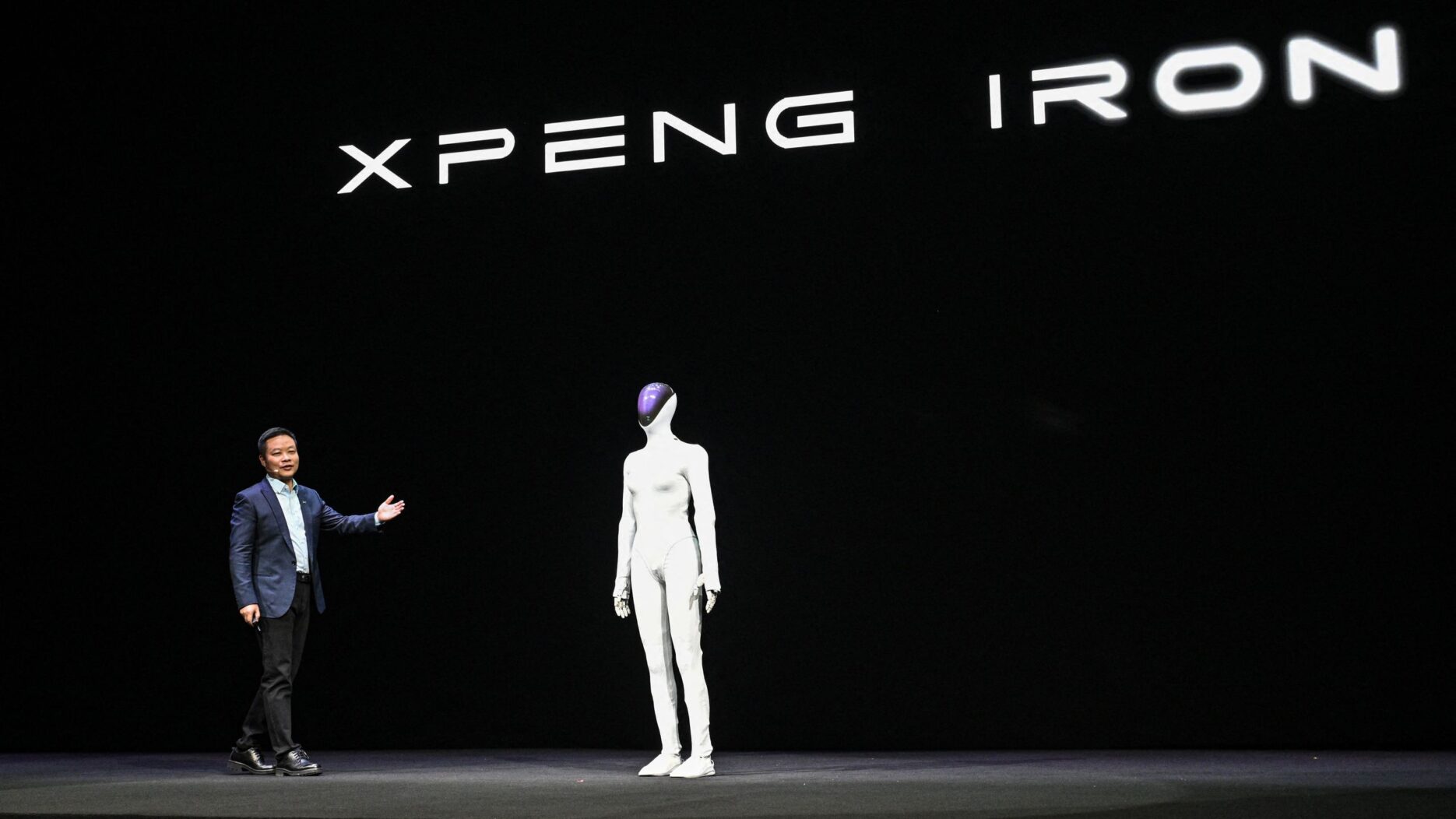Chinese electric-vehicle maker XPeng Motors (小鹏汽车) pulled off a theatrical reveal on 5 November with its new humanoid robot, dubbed IRON – a machine so smooth, so unnervingly lifelike, that it’s been accused of being a human in disguise.
At the brand’s AI Day in Guangzhou, founder He Xiaopeng (何小鹏) decided to settle the matter live. Mid-presentation, his assistants cut the robot’s synthetic skin to expose wiring and mechanical joints in its leg, proof, he said, that there was no one inside.
This still hasn’t completely assuaged doubts though. The sceptic voices of the internet have claimed that the suit contained a human with a prosthetic leg. But all this has taken away from the marvel that is IRON. It boasts bionic muscles and complex joints, all giving it an unusually fluid range of motion.
Inside, it runs on XPeng’s own powerful AI computer chip, which helps the robot ‘see’ what’s around it and react smoothly. It uses a solid-state battery (a safer, newer kind of battery) so it doesn’t need to stay plugged in. And the flexible outer skin was designed to look and feel human, which is why so many people thought there might actually be a person inside.

XPeng says IRON will enter commercial trials in 2026, aimed at service and retail scenarios rather than the household market. The company describes the project as part of China’s broader intelligent-industrialisation push that integrates robotics, mobility and AI systems across its manufacturing base.
There’s a healthy dose of strategy behind this. The Chinese humanoid robot race is heating up. Players from Unitree (杭州宇树科技有限公司) to Fourier Intelligence (上海傅利叶智能科技有限公司) are competing for headlines and likely a bit of government backing. XPeng, better known for electric cars, is jostling for position in this race. With the splash that IRON’s caused this week, it looks like they’re doing a solid job.









